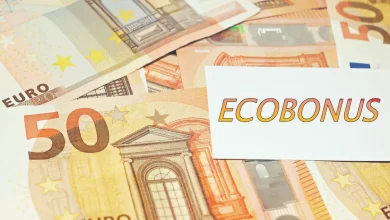The European commercial property market is shifting, with the hottest cities cooling off as investors’ interest in other locations grows. Investors look beyond London to seek opportunities in smaller markets.
Real-estate markets throughout Europe saw investors pile in following the 2008 financial crisis. With the European Central Bank and the Bank of England pushing interest rates to historic lows, real-estate returns have become increasingly attractive to investors frustrated by tiny yields in the bond market. The cheap money the central banks were pumping into their economies also fueled the demand for property.
London was a favorite of investors, along with Paris and Germany’s biggest cities. But after years of strong demand pushing up property values in these hot spots, returns are shrinking and investors are pulling back. “Most prime European commercial property market are pretty fully priced. There’s no easy money around” in them, says Walter Boettcher, director of research at property broker Colliers International.
Overall, European commercial property market investment was €43.7 billion ($47.5 billion) in the first nine months of this year, down 30% from the same period in 2015, according to real-estate research firm Real Capital Analytics. The U.K. led the decline, partly because of caution among investors both before and after Britain’s vote to leave the European Union. Germany and France also saw significant declines.
But investment in some countries, including Spain, Poland, the Netherlands and Sweden, is up from last year’s levels.
London turns down
Investment in commercial property dropped 47% in the U.K., 35% in Germany and 32% in France. It rose 20% in Poland, 9% in the Netherlands and Sweden, and 6% in Spain.
Big-ticket properties and portfolios of real-estate holdings “are still coming onto the market” in the smaller economies, which also include Austria and Ireland, says Marcus Lemli, head of European investment at real-estate broker Savills PLC. Such opportunities have become rarer in the U.K., Germany and France, he says.
Investors started pulling back from London well ahead of the EU referendum in June, due to caution over the outcome but also because property had become too expensive in the eyes of many of them. Property prices in London were among the first to start rising again after significant losses during the financial crisis; now they’re the first to start falling.
In the first half of this year, offices in central London were the only property sector in the European commercial property market where prices didn’t rise, holding steady, according to Real Capital Analytics. In the months since the Brexit vote, limited property trading in London has masked the extent of the drop in commercial real-estate values since then, brokers say, but they estimate the decline at 5% to 10%.
Still, the drop so far is less than some experts had feared. Brokers say the market is being supported by demand from foreign investors who are taking advantage of the recent steep fall in the value of the pound. Family offices from Asia and the Mideast have been at the forefront of this investment, says Richard Divall, head of cross-border capital markets at Colliers. Institutional investment “has been quieter,” he says.
International investors were behind 78% of the £2.2 billion ($2.7 billion) of commercial property sales in London between July and September, according to Savills.
Catching a rebound
“London can still offer long-term value,” says Richard Gwilliam, head of property research at London-based M&G Real Estate. But many investors are looking elsewhere, including other U.K. cities like Birmingham or Manchester, or other countries that were slower to recover from the 2008 financial crisis and the subsequent euro crisis, he says.
For instance, Spain and Portugal were among the countries that suffered the most during the euro crisis, Mr. Gwilliam says. But now, with rents rising and their economies doing better, there are more solid opportunities in Madrid, Barcelona and Lisbon, he says. “There’s a rebound element to it.”
There are still concerns throughout Europe. Brexit is part of a politically volatile environment across the continent. European economic growth remains sluggish. Some investors are worried that strong demand stemming from low interest rates is inflating bubbles in property markets.
But for now, at least, those low interest rates continue to draw investors to European real estate, says Neil Blake, head of research for Europe, the Middle East and Africa at real-estate broker CBRE Group. With the European Central Bank expected to keep interest rates low, “there’s a search for yield and investors are willing to look further afield,” he says. “I can’t see how that’s going to change for a while.”
Mr. Patnaude is a Wall Street Journal reporter in London. He can be reached at [email protected].


